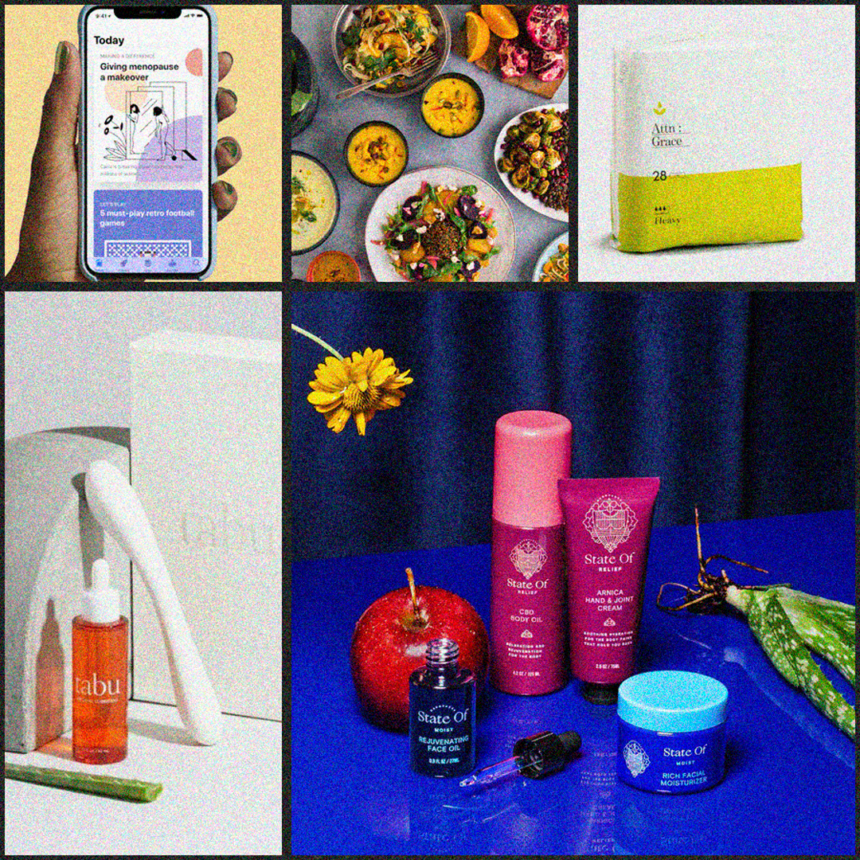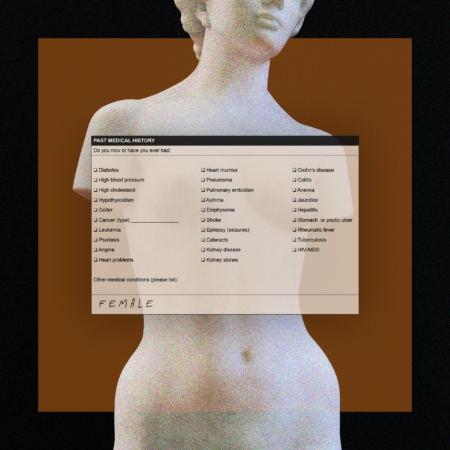Conversation. It’s not what I typically thought of when I thought of healthcare. Healthcare is doing something, it’s someone in a white coat or blue scrubs looking in your ears, listening to your heart, giving you an injection, prescribing you a medication. Health care is active, even aggressive, and it’s doctor-led, “doctor down,” with the patient receiving, following. It’s not just sitting and talking, right?
If there is conversation, it’s rushed—the patient describing as best she can what she’s experiencing, the doctor hurrying to diagnose before time runs out. That’s what healthcare is, isn’t it? I thought so, anyway. And then I took over a lubricant company. After talking with many, many women, I decided to make conversation—open, frank, thorough conversation between women and their care teams—my company’s top priority.
I felt then, and still believe, the only way to give women the healthcare they need and deserve is by starting with a conversation. But that conversation shouldn’t stop with just a woman and her doctor; to help women be truly healthy, I’m taking that conversation global.
Starting Very Private(ly)
When I took the helm at Very Private, the intimate moisture and lubricant company was aimed at helping women manage the vaginal dryness of hormonal changes. It was feminine, discreet, and effective. Well, I thought, we are helping women feel more comfortable in their daily lives, during exercise, and so on, and we are definitely helping them with pain during sex—good, important things.
But the name didn’t sit well with me. Very Private? Menopause happens to everyone born with a uterus—more than half the world’s population. It’s a natural, normal part of a woman’s life. Does keeping it “very private” serve the women who are dealing with the symptoms? So I did a survey of 1,500 women. I wanted their thoughts on how I could build my company to help them. What do you need during this time of life? How can I help you?
Hot flashes are unpleasant, but how much worse are they because you’re supposed to hide them?
Turns out they needed a lot. Help with vaginal dryness, absolutely, but also help with weight gain, crappy sleep, joint pain, heavy and irregular periods, foggy brain, hot flashes, rage and anxiety and depression, head hair loss, facial hair gain, and So. Much. More. I was overwhelmed. How could we begin to tackle so much? But they already had an answer: start the conversation. Menopause would be so much less impactful if it were part of normal, everyday, shame-free conversation, they told me.
Hot flashes are unpleasant, but how much worse are they because you’re supposed to hide them, because they’re embarrassing, because they make you look old and crony and out of control of your own body? If they were “normal,” we could just open a window and carry on rather than trying to flee to the bathroom and hoping we have an extra shirt in our desk drawer. If hot flashes were “normal,” maybe our scientists would have done more research and have more options to manage them by now.
They were right: it was well past time to normalize menopause. I rebranded Very Private to Gennev and began building what was missing. Gennev is now an online clinic where women connect with menopause-expert OBGYNS and nurse practitioners for conversations that cover all their options, all their risks and benefits, and all the latest evidence-based research without hype or hysteria. We have products that help women manage menopause symptoms safely and effectively. We have an OBGYN-created Menopause Assessment that helps women understand where they are in the transition and what else they might experience. We have a community where women can chat with other women to discover they’re not alone and with health professionals to get answers to their questions. We have a physician-vetted library of articles, expert podcast interviews, videos, and other resources where women can learn what’s happening in their bodies and know they’re not “crazy.”
No more secrets; no more shame
One hundred percent of humans born with a uterus will go through menopause, if they live long enough. Only seven percent of them will get the help they need to manage the transition.
Only seven percent get help because with no conversation, women don’t know that their symptoms are related to hormonal changes. Seven percent because women aren’t educated about their bodies, so they often don’t have the language to express what they’re experiencing, nor are they sure who to ask.
Because it’s a “secret” (if possibly the world’s worst-kept one) and stigmatized, it’s not taught at schools, mothers don’t talk to daughters, friends don’t share stories, women are even reluctant to bring up their issues with their doctors. Even worse, because it’s not talked about, it’s not taught at medical schools, doctors are poorly informed about it. There are few safe, effective solutions, and women are suffering needlessly.
View this post on Instagram
Because there’s been no conversation, no one’s been driving the research and innovation we need to solve the challenges women face. What causes hot flashes? We don’t really know. How can we prevent or cure osteoporosis? We can’t, not really. Does black cohosh work? No better than a placebo. How do we help women sleep through the night? Tell them, “Practice ‘sleep hygiene’ and take magnesium?” It’s not enough. It’s never been enough, not when women aged 45-64 die by suicide at a higher rate than any other group of women, in part due to shifts in hormones (although we don’t know how much because not only have we not done the research, science is just now making the connection). It’s not enough when women are having to take time off or even leaving the workforce due to their symptoms.
We can do better. The conversation has started We’re already doing better. As women have rallied for better, safer choices and more support, companies like Gennev are helping lead the way. There are some amazing innovations out there to help women sleep, manage symptoms, learn how to protect their bones, brains, and hearts from the loss of estrogen, and enter this second half of their lives healthy, informed, empowered, and unashamed.
Companies are starting to understand how a very large percentage of their workforce are impacted, how that affects their bottom line, and how simple, really, it can be to support their female workforce so they can continue performing. But when women are going to the ER because of perfectly normal, harmless peri-menopausal heart palpitations, or when they’re leaving their jobs because unmanaged symptoms make work seem impossible, we’re not there yet.
At Gennev, we’re here for all of it. I am all in, and I’m bringing every woman I can with me. And that’s what I mean when I say I’m taking the conversation global. It’s great that women are starting to talk with their doctors; we’ve seen mentions of menopause in the UK Parliament and I’ve been able to talk about it on the morning news. But I’m not done yet. I’m working to make menopause as normal a part of conversation as arthritis, as unthreatening as talking about needing new glasses, as common as discussing your skin care regimen.
Because when women are able to talk about their issues; when their partners, colleagues, bosses, friends, and children understand the process and are empowered to support them through it, that’s when women will truly have the support they need to thrive in this rich, vibrant, and yes, sexy second half of life.
Jill Angelo is the CEO and founder of Gennev, the first-ever online clinic for women in menopause offering telemedicine access to OBGYNs, menopause health coaches, wellness products and free education. Prior to running Gennev, Jill spent 15 years at Microsoft in executive roles such as Chief of Staff to the CMO and Director of Global Media.







